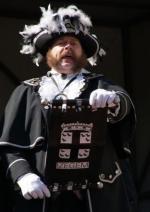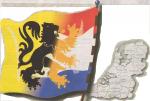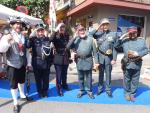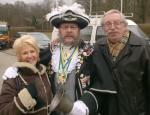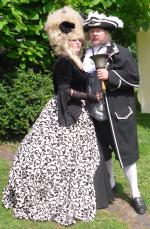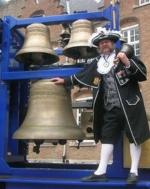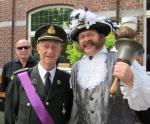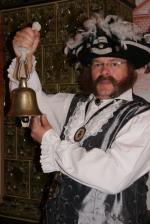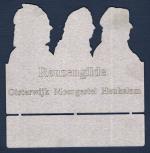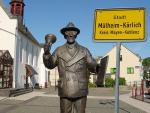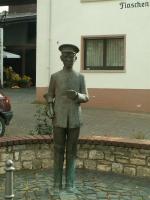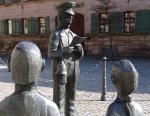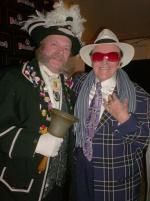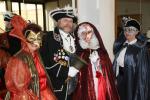Town crier sacked for not being from town
A town crier launched a very loud war of words today after he was sacked ...
for not being from the town.
Furious Roov Andrew has spent five years shouting public announcements since he was appointed crier of Brixham, Devon.
But officials at Brixham Town Council are to replace him at a cost of £2,000 because hes from nearby Kingsteignton.
Roov holds the position of town crier for Torbay which includes the towns of Brixham, Torquay and Paignton.
But Brixham officials have now given him the boot and say they want to employ an exclusive crier to represent the towns unique identity.
Roov has slammed the decision as ridiculous and says he has the backing of the Ancient Honorary Guild of Town Criers.
He said: It seems a bit ridiculous they want their own when theyve got one, and it doesnt cost them anything because everything has been paid for by Torbay Council and the carnival committee."
Ive spoken to the Ancient Honorary Guild of Town Criers, of which I am a member, and theyve said they wouldnt be allowed a town crier without my permission. When I spoke to Brixham Council about this they point blank refused to acknowledge that I was the town crier for Brixham. They said I was the town crier for Torbay, which I thought was the three towns of Torquay, Paignton and Brixham.
Town clerk Ki Barnes insisted the council is entitled to have its own dedicated Brixham town crier.
She said: Mr Andrew represents the Bay and not Brixham in particular, and as a town council we are entitled, if we wish, to have our own town crier. The Brixham town crier may not be allowed to be a guild member but that doesnt prevent us from having a town crier, and there are other town crier guilds he could join. Brixham has its own unique identity and wanted its own unique town crier.
The search for a new crier is currently on hold because of the cost but the council is adamant that Mr Andrew can no longer represent the town.
In Medieval England town criers were the chief means of news communication with the people, since many could not read or write.
|


